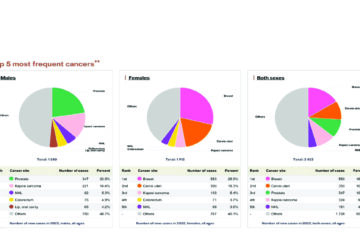Allexer Namundjebo
Since 2020, the ministry of agriculture, water and land reform has built 42 earth dams.
These include 16 in Oshana, 10 in Ohangwena, three in Oshikoto, two each in Hardap, Karas, and Omusati, three in Kunene, and four in Kavango West.
Prime Minister Elijah Ngurare revealed this statistic to Parliament on Thursday, while responding to questions by PDM leader McHenry Venaani.
Ngurare said that while progress has been made in assessing the feasibility of floodwater harvesting, dam construction must be strictly monitored.
“Significant efforts have been made to assess and address the feasibility of floodwater harvesting in flood-prone areas,” he said.
In August last year, the ministry of agriculture, water and land reform announced it had allocated N$17.5 million to regional Councils for the excavation of earth dams across the country during the 2023/2024 financial year.
This was revealed during a meeting with the National Council Standing Committee on Agriculture, Environment and Natural Resources as part of its oversight visits to the Hardap, Khomas, //Kharas, Oshana, Omusati, Ohangwena, and Oshikoto regions.
The ministry had aimed to excavate 129 earth dams nationwide, but procurement delays have pushed the target to the next financial year.
By October, regional councillors from northern parts of the country had urged the government to prioritise the construction and renovation of earth dams to tackle ongoing water shortages.
They argued that these dams could store floodwaters for future use, supporting both communities and agriculture.
Okatyali Constituency councillor Joseph Mupetami, at that time, called on the government and NamWater to build dams along major water pipelines to improve water supply to rural areas.
Ngurare said private individuals or companies must get official approval before building dams.
“This includes submitting detailed dam design information to assess the potential safety risks associated with the proposed structure,” he added.
“Several investigations have been carried out which provided information on the feasibility and impact of floodwater harvesting on the environment. All dams constructed by the Ministry have complied with the legal requirements relevant to their category,” Ngurare said.
He raised concerns over recurring vandalism.
“These dams are always vandalised by community members. They are regularly rehabilitated to restore structural integrity, and community awareness about flood risks is created through flood bulletins,” he said.
Earlier this year, northern regional councillors called for urgent government action following heavy rainfall.
Onesi Constituency Councillor Titus Kanyele said four new dams are needed to prevent water shortages.
Venaani also pushed for water infrastructure reform.
“Clean water is not a luxury, it is a constitutional human right,” he told Parliament.
He criticises delays in project deliveries.
“Although N$100 million was allocated for earth dam excavation this year, only 11 dams have been completed. That’s unacceptable.”
Venaani proposed a national Water Commission to oversee sustainable water use and drought response.




